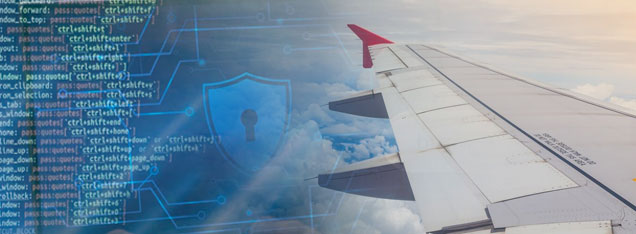The Travel & Logistics industry plays a vital role in facilitating the movement of people, goods, and services across the globe. It encompasses a diverse range of sectors, including transportation, hospitality, supply chain management, and tourism, each contributing to the seamless operation of global commerce and connectivity.
The travel sector focuses on facilitating the movement of people, encompassing air travel, rail transportation, maritime shipping, road transportation, and related services such as accommodations, tours, and activities.
The logistics sector revolves around the movement of goods and services, including warehousing, inventory management, transportation, distribution, and supply chain optimization.
The Travel & Logistics industry is a significant contributor to global economic growth, generating trillions of dollars in revenue annually and supporting millions of jobs worldwide. It fuels trade, commerce, and tourism, driving economic development and prosperity across regions and industries.
Travel & Logistics play a crucial role in connecting people, businesses, and markets worldwide, enabling the exchange of goods, services, and ideas across borders and continents. It facilitates international trade, cultural exchange, and collaboration, fostering globalization and interconnectedness.
Efficient travel and logistics systems enhance productivity, reduce costs, and improve resource utilization by optimizing transportation routes, streamlining supply chains, and minimizing transit times. This leads to increased efficiency, competitiveness, and sustainability for businesses and industries.
The Travel & Logistics industry is undergoing a digital transformation, driven by advancements in technology, data analytics, and automation. Digital platforms, mobile apps, and IoT devices are revolutionizing how people travel, book accommodations, track shipments, and manage logistics operations.
Environmental sustainability is becoming a key focus for the Travel & Logistics industry, with initiatives aimed at reducing carbon emissions, promoting eco-friendly transportation modes, and implementing sustainable practices throughout the supply chain. This includes investments in electric vehicles, renewable energy sources, and carbon offset programs.
Personalization and customer experience are paramount in the Travel & Logistics industry, with travelers and consumers expecting tailored services, seamless experiences, and real-time communication throughout their journey. AI-driven recommendations, virtual assistants, and data-driven insights are shaping the future of personalized travel and logistics services.
The future of Travel & Logistics will be shaped by technological innovation, including AI, blockchain, robotics, and autonomous vehicles, which will revolutionize operations, enhance safety, and improve efficiency across the industry.
The concept of Mobility as a Service (MaaS) is gaining traction, offering integrated and multi-modal transportation solutions that allow travelers to seamlessly plan, book, and pay for their journeys across various modes of transport, including public transit, ride-sharing, and micro-mobility services.
Sustainability will continue to be a driving force in the Travel & Logistics industry, with a growing emphasis on sustainable mobility solutions, renewable energy sources, and eco-friendly practices to reduce the environmental impact of transportation and logistics operations.

The Travel & Logistics industry is inherently complex, involving multiple stakeholders, intricate supply chains, and ever-changing market dynamics. In this digital age, technology plays a pivotal role in driving innovation, efficiency, and competitiveness within the industry. However, the adoption and implementation of IT solutions also present a set of unique challenges and hurdles that organizations must overcome to succeed. Here are some of the key IT development challenges faced by the Travel & Logistics industry.

Many organizations in the Travel & Logistics sector rely on outdated legacy systems and infrastructure that are not designed to meet the demands of modern business operations.
The Travel & Logistics industry operates within a complex ecosystem of interconnected systems, platforms, and data sources. Achieving seamless data integration and interoperability across these disparate systems is a major challenge.


With the increasing digitization of Travel & Logistics operations, cybersecurity threats and data privacy concerns have become significant challenges for organizations in the industry.
As Travel & Logistics companies grow and expand their operations, they must ensure that their IT infrastructure, applications, and systems can scale to accommodate increasing demand and transaction volumes while maintaining optimal performance.


The Travel & Logistics industry is subject to a myriad of regulations, standards, and compliance requirements imposed by governments, regulatory bodies, and industry associations. Ensuring compliance with these regulations is a significant challenge for organizations in the industry.
Maxaix is committed to revolutionizing the Travel & Logistics industry through innovative technology solutions that drive efficiency, enhance customer experiences, and unlock new opportunities for growth. Here's how we deliver business value to our clients.

We specialize in developing tailored software solutions that address the unique challenges faced by Travel & Logistics companies, including route optimization, inventory management, fleet tracking, and supply chain visibility.

We leverage automation technologies, AI-driven algorithms, and predictive analytics to streamline operations, reduce manual tasks, and improve efficiency across the entire Travel & Logistics value chain.

Our solutions are designed to optimize resource utilization, minimize waste, and reduce operational costs for Travel & Logistics companies, enabling them to achieve greater profitability and competitive advantage in the market.

We prioritize user-centric design principles to create intuitive, seamless, and personalized experiences for travelers, shippers, and logistics professionals, enhancing satisfaction and fostering loyalty.

Our solutions provide real-time visibility into shipment status, delivery updates, and supply chain operations, empowering customers with the information they need to make informed decisions and manage expectations effectively.

Our risk management strategies encompass proactive monitoring, predictive analysis, and contingency planning to anticipate and mitigate potential disruptions, such as weather events, geopolitical instability, and supply chain disruptions.

We invest in research and development to stay at the forefront of technological advancements and industry trends, enabling Travel & Logistics companies to embrace innovation, adapt to market changes, and future-proof their businesses.

We collaborate closely with our clients, industry partners, and technology providers to co-create innovative solutions, exchange best practices, and drive continuous improvement in the Travel & Logistics ecosystem.
At Maxaix, we understand the unique challenges and complexities of the Travel & Logistics industry. Our development work process is meticulously designed to deliver innovative, efficient, and scalable solutions that meet the evolving needs of our clients in this sector. From initial concept to deployment and beyond, we follow a structured approach to ensure the success of every Travel & Logistics project.


